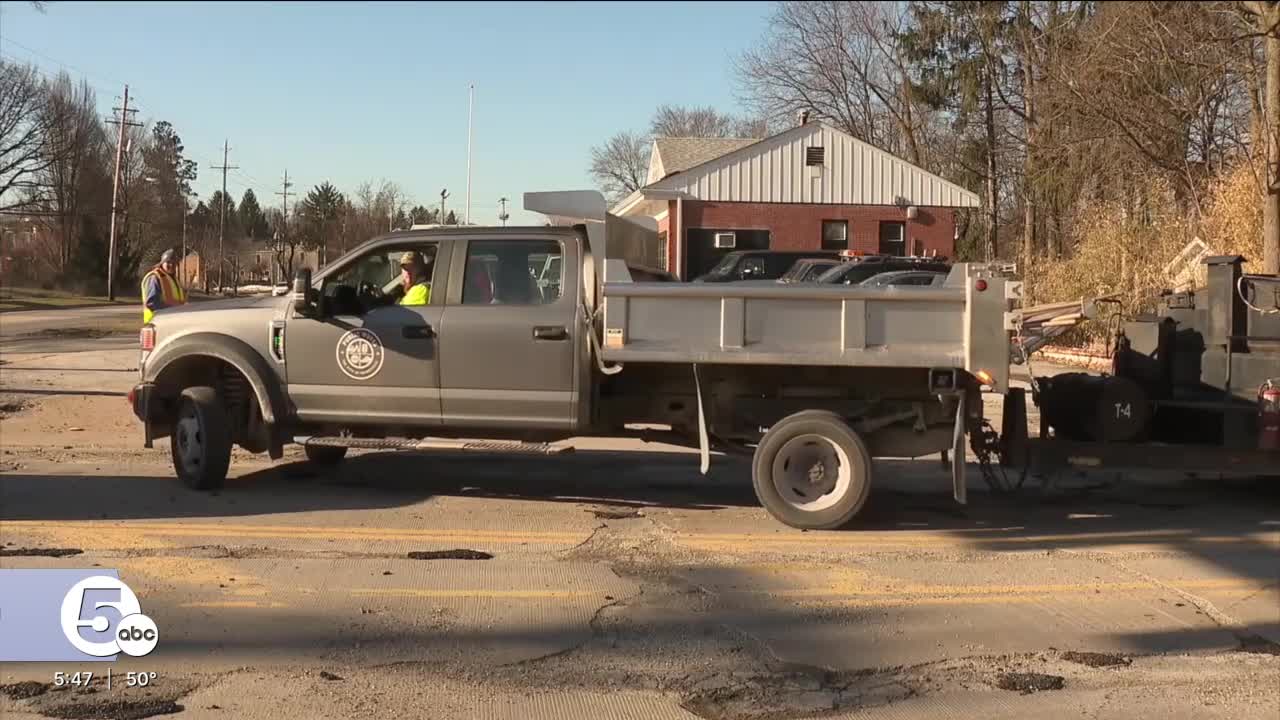CLEVELAND — Potholes can happen at any time and can quickly turn a smooth ride into a bumpy one.
That's why Munir Nazal's research team at the University of Cincinnati began a year-long research project focused on fixing these troublesome holes.
"We looked at what materials had been used nationwide and what methods had been used," Nazal said.
To do that, the team rode along with the Ohio Department of Transportation, the City of Columbus, and the City of Cleveland to observe what materials they used and how they patched roads.
Cleveland Streets Commissioner Randall Scott said the city learned it was ahead of the curve when it came to pothole patching technology. It has to do with the city's recycled asphalt program.
"When we do our pavement resurfacing program," Scott said. "We take those grindings that are collected, and we stockpile them. We take them to our facilities with our machine. They recook the asphalt and become like virgin asphalt all over again."
That, along with spray injection patching, consistently keeps the city's investment in road maintenance at $20 million.
"It helps us have a more quality patch," Scott said. "Prevents us from having so many repeat visits."
So, does Cleveland have the best pothole patching method?
"We found that there was really not one method or material combination that would be best," Nazal said.
After reviewing 700 potholes in one year, Nazal said the best solution will differ from city to city. In general, it will mean finding a good material that won't break the bank.
"There really is no way to keep the potholes away," Nazal said. "But, you can install a patch that will last longer."





